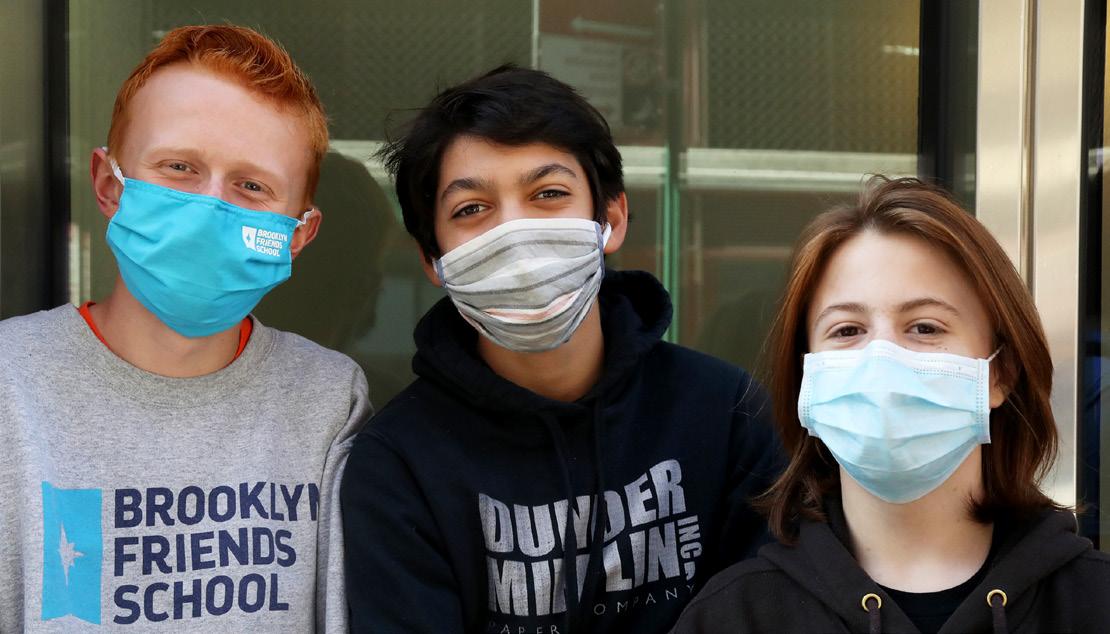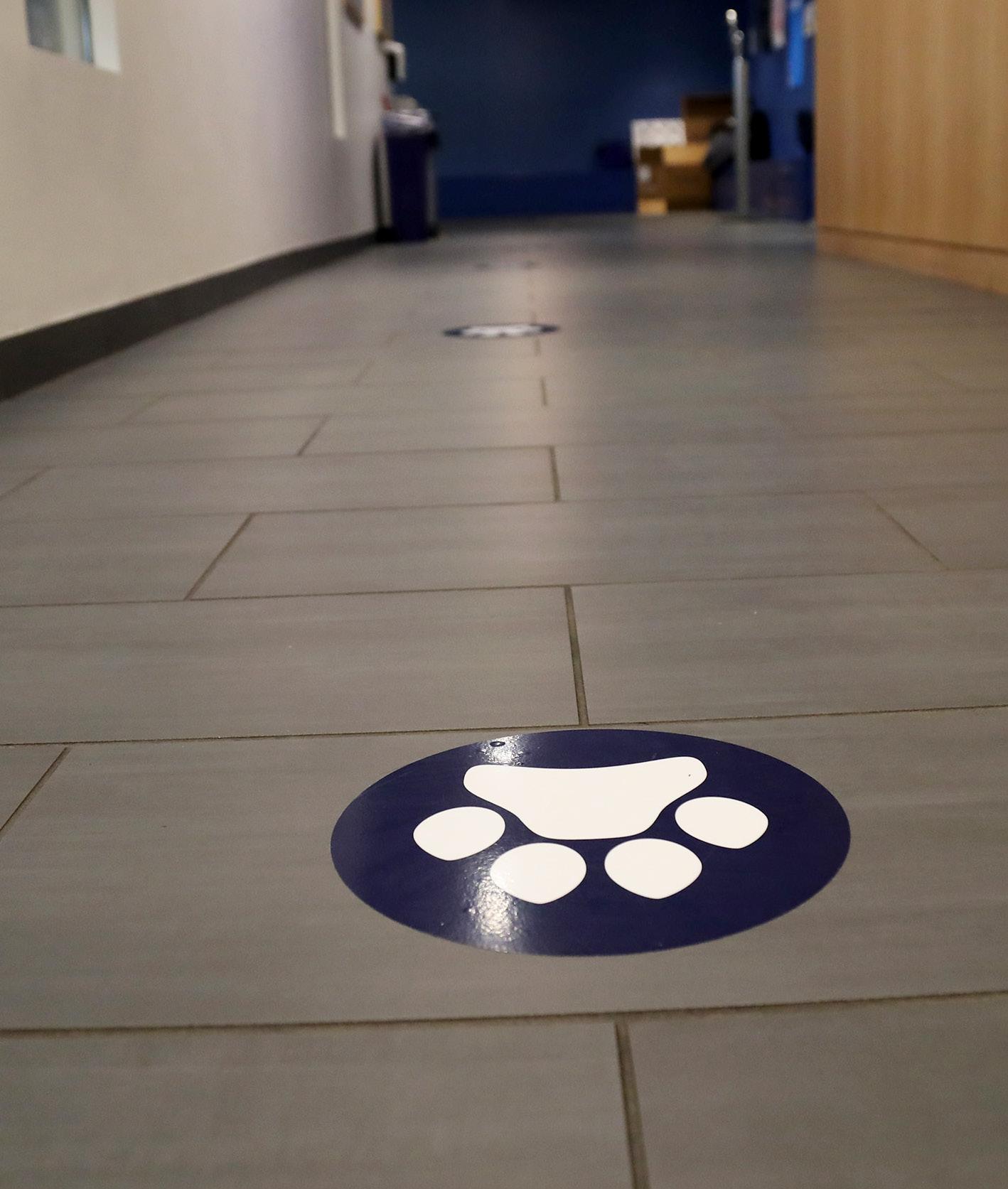
8 minute read
More Wonderful Than I Could Ever Describe”: The International University Experience
“More Wonderful Than i could ever describe”: The international university experience
How exactly does one respond when your child comes —because of the European university timeline (which is home and tells you they’d like to go to college in a foreign different from that of the U.S.)—would not find out about U.K. country? For four years? Not just “Junior-year abroad”? and European acceptances or rejections until July. Some
Each year, the college office at BFS addresses student interest in universities in Canada, the United Kingdom, Europe and—this year especially—the Netherlands. The of her peers—those who had applied “early decision”—had known since December where they were going to attend school the following September. Talk about a gamble.
Journal spoke to several parents and students about their When Maya did get her acceptance from Trinity, as well interest in and/or experience at international schools. as the University of Edinburgh, it was time to have that
Anita Bushell, contributing Writer, Alum Maya’s dream to go to Trinity was coming true—she had
Parent, Former school committee Member: Our daughter, Maya, having spent many a high school done all the work in making it happen and my husband and I both agreed that it was our job to let her go. summer traveling to countries such as Ecuador, England, and Ireland, decided she wanted to apply to schools Maya Bushell, Trinity college, Dublin (’20), such as the University of St. Andrews; the University BFs (’16) of Edinburgh; and Trinity College, Dublin. The Journal: can you tell me about what
Although the initial shock was profound, it took all brought you to the decision regarding the courage I could muster to take a deep breath, put up both my arms against the tide of flooding thoughts, international-school applications? Having lived in New York City my whole life and having gone and respond with a calm, and controlled statement: to school in Brooklyn for almost my entire educational career
“That’s an interesting idea. Let’s talk about that.” (barring a two-year stint in Queens), I felt like I wanted to be
First, a little backstory: my mother would have never entertained this conversation when I was applying to colleges. Without going into family history, it is important to note that her idea of college was that I stay as close to home as possible.
It was precisely because of this kind of thinking that I held my tongue. After all, who was I to tell Maya that she couldn’t follow her international university dream?
At this stage, though, it was just that: a dream. She had not yet applied, and she certainly had not gotten any acceptances. And with that, I put the whole conversation out of my mind. If there was one thing adulthood and parenting had taught me it was that there was no point torturing myself about something that had not happened yet.
While senior year and the college application process were grueling, a strange reality was beginning to form, one that we could not have possibly prepared ourselves for. As the college letters started arriving, it became clear that Maya conversation. And I couldn’t be happier that we did.
PhoTo aBoVe Maya Bushell ’16
somewhere completely different while attending college. For a long time I considered taking a gap year, which I still believe is an exceptional choice for anyone unsure if they want to go straight from high school to university, but I realized that what I ultimately wanted was to have the adventure of taking a gap year (traveling to, and living in a different country, as well as immersing myself in a new culture and its people) while also continuing my studies. Attending an international university seemed like a perfect medium between these two desires, so I began researching schools in countries I wanted to live in, which also had strong programs in the areas of study I wanted to pursue.
What was the application process like, including acceptances/rejections/waitlists? And the period between final U.s. acceptances and Trinity?
The application process was very straightforward, but unfortunately not centralized like the U.S. system, where the majority of colleges utilize the Common App. I had to make an individual application to each of the universities I applied to through their specific websites, the components of which were very similar to most U.S. schools: a short personal essay, academic transcript, teacher letters of recommendation, and an outline of any relevant extracurricular pursuits. The one critical difference was that I chose to submit my IB test scores instead of my SAT/ACT scores for consideration. This was a choice given to me, which I took because I felt more confident in my ability to achieve high marks on the IB exams rather than through standardized tests, which I’ve always performed poorly on. This meant my teachers had to prepare my predicted IB grades to send with my applications. Since the IB exams are not held until much later in the school year, I received conditional acceptances to the universities where my applications were successful, which meant I had to achieve a certain score on my IB exams in order to officially attend the university of my choice. This score was assigned based on the specific degree of study I was applying to, which, in the case of most of my applications, was a joint English Literature and History of Art and Architecture program. Although studying intensely for the IB exams in order to achieve the scores I needed was, at many points, incredibly stressful, it ultimately prepared me very well for the European university system, on which the IB program is based. Having to wait to receive my final scores, and ultimate acceptance to these universities—until mid-summer—was, in all honesty, excruciating, but I was privileged to have it be rewarding. I would be happy to speak more in depth with anyone interested in taking this route, which I found to be more singular within BFS when undertaking the application process.
conTinued on neXT PaGe
What others are saying
Loane Bouguennec, 11th grader, BFS
I think that I’m interested in international schools because I greatly value global perspectives.
I think that I study history and politics with a slight bias, and I’m interested in understanding an outsider perspective on American issues and other political conflicts.
I think that because European countries all border each other there is more cultural exchange which I find less commonly in the U.S.
I think that the European application process encourages its students to find a school that is the right fit rather than applying to as many as possible, as the application process is more restrictive.
I greatly value the small classroom sizes and individualized attention I experience at BFS. However, I think that navigating a larger university will be a new challenge for me that will further teach me to advocate for myself.
Pascale setbon, Mother of Loane Bouguennec
My husband and I were born and raised in France.
We came to America 25–30 years ago—the
American dream was sold to us at the time.
Loane, our daughter, is a true bilingue and bi-cultural young adult. She has developed great interest for French literature and political science. She had a very good school experience at BFS and has been very interested for several years now getting closer to the true experience of American colleges. She likes that you can double in a major and have lots of flexibility in choosing courses you have never thought about before, just to expand your mind and discover a little more of who you are. In Europe,
Loane is attracted by the culture of the added value of all European countries that she can take advantage of once there. She is interested in going away to come back for a master’s [degree]. The European track is also very appealing for financial aspects. If you ask the question to Loane, she may have a very different story to share.
FroM PreVious PaGe
What was the experience like, especially first year, of studying at Trinity? Academic/ social/life abroad/travel?
My experience studying at Trinity was more wonderful than I could ever describe. It was definitely an incredibly challenging university to attend, but it taught me to be independent in more ways than I expected. I learned to cook (there’s no meal plan at Trinity; you live in apartments with full kitchens), navigate a city and culture that was extremely different from my own, and become a skilled independent writer and researcher, which is what Trinity’s academic environment ultimately asks from its students. In the beginning, there were many days—even weeks—where I felt like I had absolutely no idea what I was doing. I soon realized, however, I was in the exact same position as all of my friends and peers. The transition from high school to college doesn’t come easily or quickly to many, myself included. It took a long time to feel as though I was in step with the experience I wanted, but that feeling did come, and it was because of the community that I built. The classes were amazing, the opportunities for travel extraordinary, but the people were everything. Friends shared in my life and welcomed me into theirs, and allowed me to feel that home, though distant, was never that far away.


one last question: how did living abroad inform your love of travel? And how did opportunities for travel enhance your learning experience at Trinity?
By studying at Trinity, I was able to travel a great deal, both within Ireland and throughout the rest of Europe. The ease of access to travel (inexpensive airfares, student rates on train tickets, etc.) made it so that I could travel during the academic year and visit places I’d always wanted to go but couldn’t justify traveling to from the U.S. for shorter periods of time. All the trips I took reinforced my love of travel and enabled more intimate experiences with cities I’d always wanted to experience. Trinity also encouraged travel, not just through established programs such as Erasmus and Study Abroad, but within individual departments, as well. In my second year I went to Paris with the Art History department and spent a week visiting architectural sites, museums, and galleries with my professors, which offered an incredible experience of these spaces and institutions and furthered my general course of study through in-depth engagement that was made possible through travel.











